Feeling anxious and wondering how to be less nervous? Well, you’re not alone—everyone gets jittery from time to time.
But here’s the thing: nerves are just a part of being human, and there’s nothing to worry about. In fact, let me share 15 sentences that might just help if you’re thinking about how to make yourself less nervous.
You’re NOT feeling fear – it’s excitement. The tingling sensation that runs down your spine is your body’s way of telling you to get ready for what’s coming next. Instead of being scared, try and think about how thrilling this journey will be.
Related: How To Recover From A Mental Breakdown: 7 Life-Changing Secrets
How To Be Less Nervous And More Confident?
1. “Keep in mind, feeling anxious is simply a signal that you’re on the verge of taking action.”
Don’t forget that nerves are your body’s way of preparing itself for a tough task. In fact, they may even help you perform better by giving you more energy and focus.
2. “Take a long breath in and then let it out slowly”
Wondering how to feel less nervous? Unbelievably, deep breathing has been shown to trigger the body’s relaxation response. Your heart rate slows down and those pesky feelings of anxiety get lessened too.
3. “Focus on what you can control, such as your attitude and preparation, – instead of what could go wrong.”
Going all-in on things within your control will make it easier for your mind to push away thoughts of potential issues.
4. “See yourself doing well in your head; your brain can be tricked into thinking this makes you more capable.”
Envisioning yourself succeeding does some science-y stuff in your noggin. It creates the same pathways that actually performing the task would, pushing confidence up while pushing nervousness down.
5. “Don’t compare yourself to anyone else; remember that everyone goes at their own pace.”
Comparing yourself to others is a major mental trap! It can lead to lots of self-doubt and anxiety, so instead try thinking about how far YOU’VE come rather than comparing distances with someone else.
6. “Be happy about having butterflies in your stomach because it means you’re getting somewhere new.”
Having nerves implies growth and not weakness like most people might think. Take pride in knowing that these feelings mean progress!
7. “Think back on past achievements; you’ve beaten hard tasks before, so why couldn’t you now?”
Looking at what we’ve overcome in the past does wonders for our beliefs about ourselves. When we see how good we really are at handling bad situations, we start to believe we can handle anything coming our way!
8. “Smaller steps are easier to tackle than a giant leap; breaking it up will make you less overwhelmed.”
For those who get bogged down when looking at a big task, try this out. Break it into smaller pieces so that each step is manageable and emotions of anxiety get diminished!
9. “Don’t trip on what’s coming next; thinking ahead only adds more unnecessary stress.”
Staying present and focusing on the now can be hard but it helps tremendously when dealing with nerves. Train your mind to stay in the moment rather than jumping to worst-case scenario.
10. “Forget about mistakes for a bit; they don’t do anything to your value as a person.”
Mistakes are not flaws. Remember that! They’re actually just opportunities for growth in disguise. Keep pushing forward knowing that each screw-up is one step closer to being better.
11. “Lean on those around you who believe in you and lift you up.”
How to feel less nervous? Well, surrounding yourself with supportive people does wonders for self-esteem and confidence. When going into something nerve-wracking, make sure there’s someone there who believes in you even if doubt starts creeping in.
12. “Remind yourself of all the great things you’ve done already because there’s no doubt that there will be more in the future!”
Take some time to think back on accomplishments from days past. Your strengths should be acknowledged and remembered, especially during times of high pressure.
13. “I’ve done everything in my power to get ready, and that’s all I can do.”
It’s important to acknowledge the work you’ve put in; it helps boost your confidence and reduces anxiety about not being prepared enough.
14. “It’s okay to ask for help or clarification if I need it.”
Recognizing that asking others for assistance shows assertiveness and resourcefulness can help alleviate any distress about dealing with unfamiliar situations alone.
15. “And finally, understand that being nervous is normal: it shows how much this means to you!”
Being nervous is okay! In fact, I would say it’s good because it means this thing has value in your life. You care about performing well which is why you’re feeling anxious right now.
Related: 11 Scary Symptoms of A Nervous Breakdown
Some other ways on how to be less nervous:
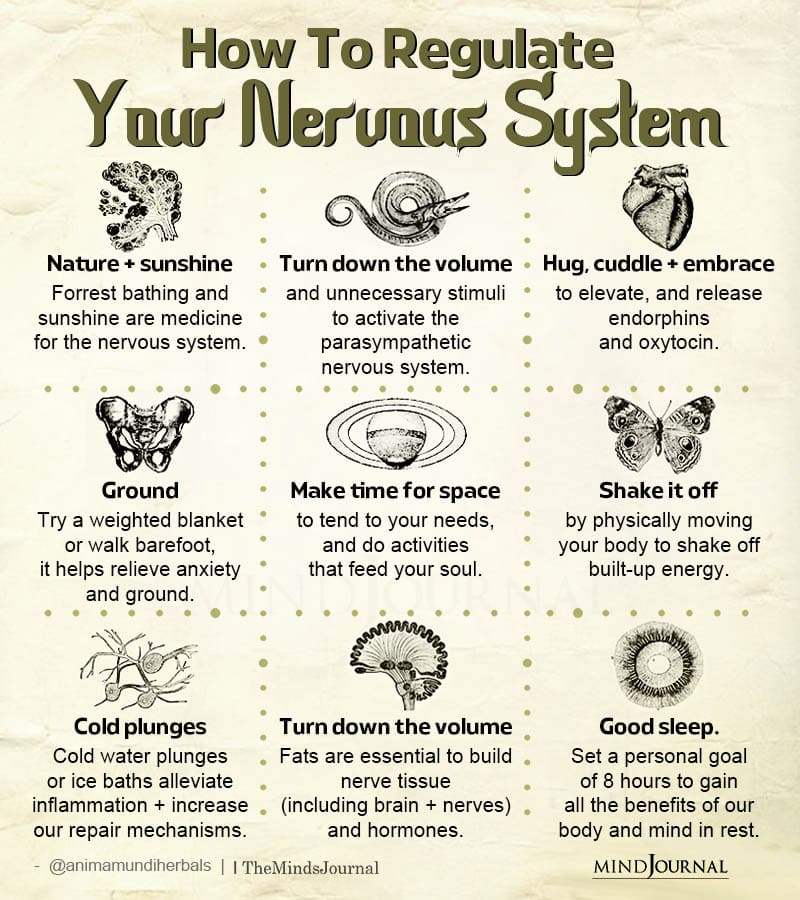
This is how to make yourself feel less nervous. Let these sentences on how to feel less nervous serve as guiding lights. Tell us your favorite one in the comments below!
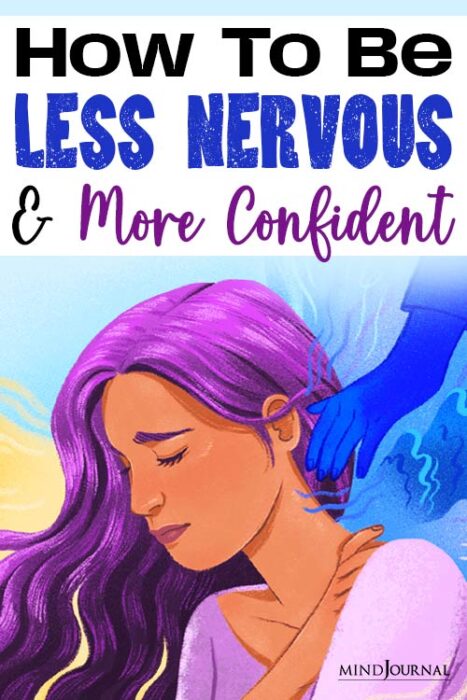
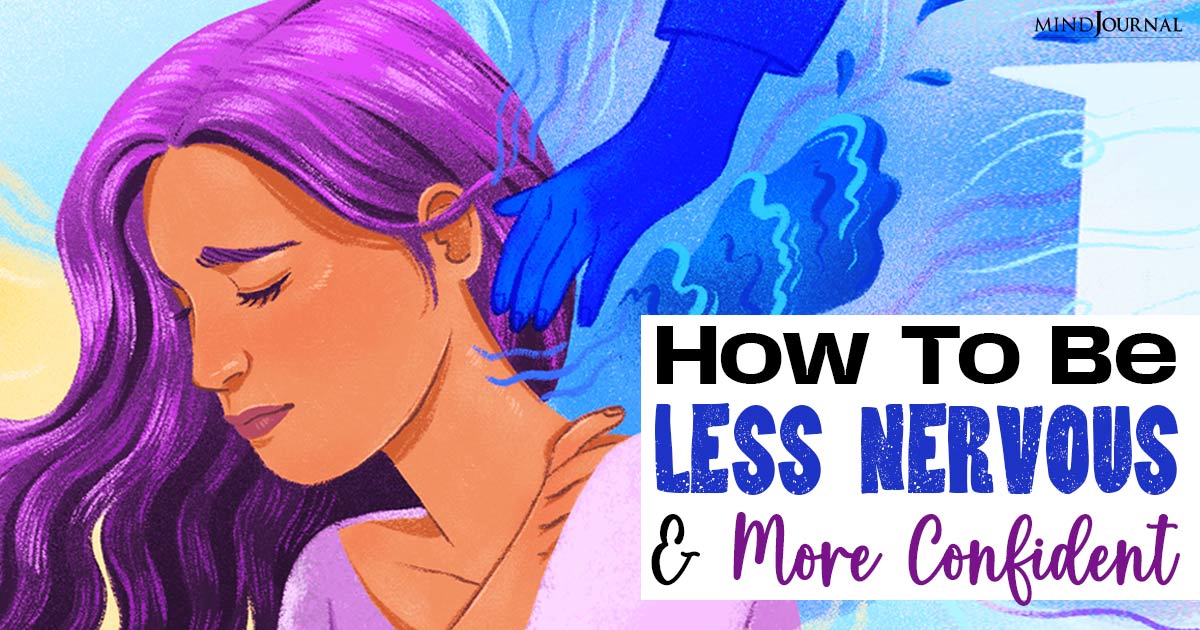

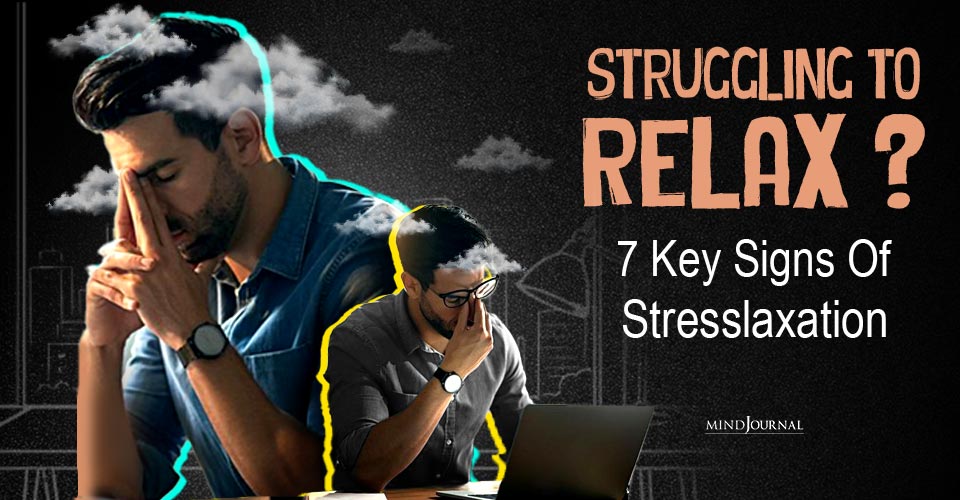

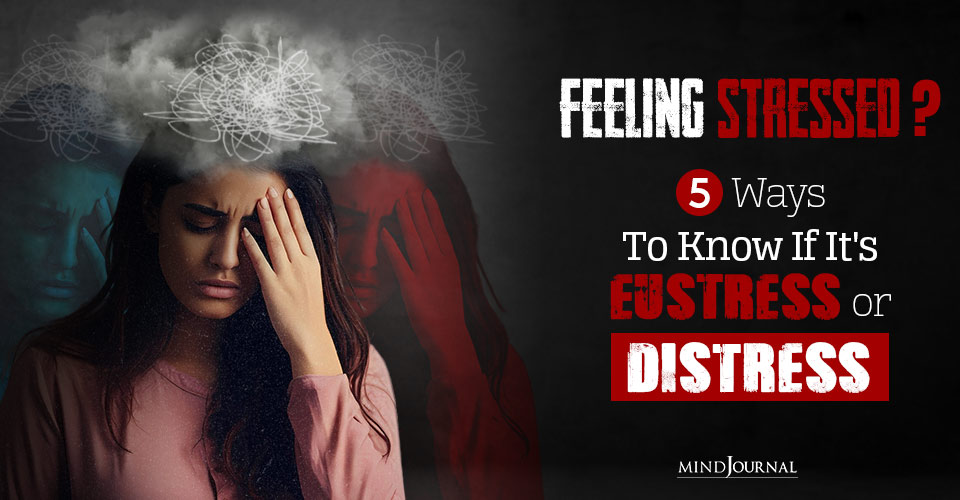
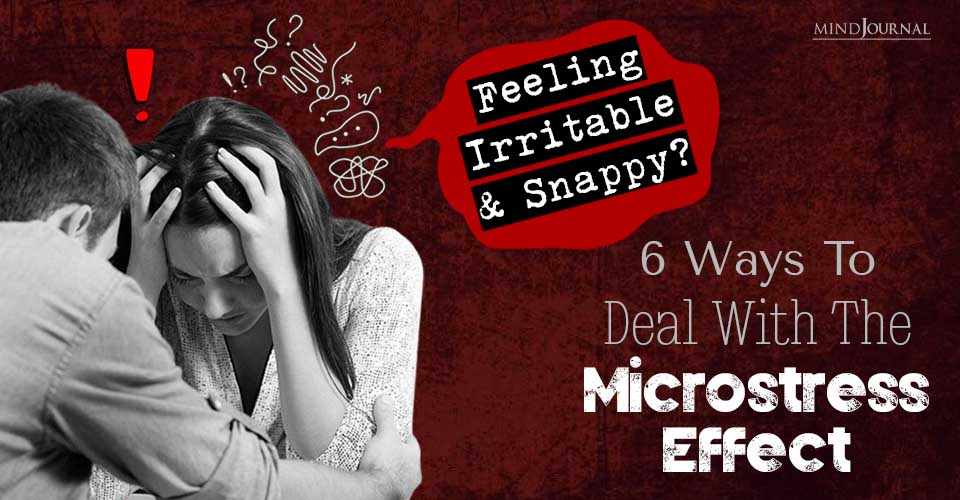


Leave a Reply
You must be logged in to post a comment.